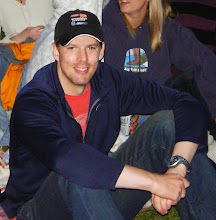Saturday, May 31, 2008
Divine Economy Introductory Reading List
Walter Brueggemann, passim. Especially, “The Liturgy of Abundance, The Myth of Scarcity.”
Ched Myers, passim. Especially “God Speed the Year of Jubilee” Sojourners
Meir Tamari, The Challenge of Wealth
Luke Timothy Johnson, Sharing Possessions
Sondra Wheeler, Wealth as Peril and Obligation
Elizabeth Newman, Untamed Hospitality, chapter 2
Latin American Liberationists
John Haughey, ed. The Faith That Does Justice, esp. chapter 3
Christine Pohl, Making Room: Recovering Hospitality as a Christian Tradition
Amy Oden, And You Welcomed Me
Justo Gonzalez, Faith and Wealth.
John Howard Yoder, The Politics of Jesus
Doug Meeks, God the Economist
Monday, May 19, 2008
Jesus and Justice
“Jesus is the Justice of God.Absolutely brilliant!
This means there can be no division between confessing Jesus and doing justice. We cannot pick Jesus or justice; we cannot give priority to one over the other. This is the case because Jesus and justice finally are not two things, only one. Jesus is our Justice. Therefore, Christians can only do justice rightly by proclaiming Jesus and we can only
proclaim Jesus faithfully by doing justice. To proclaim the good news of Jesus is to do justice; to do justice is to proclaim Jesus. To do anything less is neither to confess Jesus nor do justice rightly.”
The other Journal has the full transcript of his talk here.
Sunday, May 18, 2008
Law, System, & Life-world
Working through the issues has been slow going so it might be a while before I have something I’m ready to put out for people to read. In the mean time I thought I would throw out a very suggestive quote from Anthony Thiselton’s large and very dense volume “New Horizons in Hermeneutics”. Thiselton, drawing on the socio-critical theory of Habermas and John Rogersons and their work on systems and life-world writes:
“The human life-world of interactive communication is seen theologically as corporately fallible and structurally flawed by self-interest. Co-Operative interaction need not always be for good, by may serve corporate self-interest. On the other hand Paul sees the law simultaneously as fulfilling two systemic functions. On the one hand, it serves as an external transcendental value-frame, providing a critique of the human life-world. In this respect “if it had not been for the law, I should not have known sin” (Rom 7:7); i.e. my relation to sin would have remained at a pre-critical narrative level. “the law is holy… just and good” (Rom. 7:12); for it constitutes a necessary transcendental critical system. On the other hand, the system of law provokes conflict with the human life-world: “Apart from the law, sin lies dead… but when the commandment came, sin revived…The very commandment which promised life proved to be death to me” (Rom. 7:8-10).
In the face of this self-defeating, though necessary, system, Paul expounds the different basis and effects of the principle of grace which brings about new integration and new creation of the “one” (2 Cor 5:17). Repeatedly this is seen in terms of “freedom” from the system of the law (Rom 8:2; Gal 5:1). But this is not (as in a non-Pauline Pelagian view of freedom) a freedom to construct any kind of life-world. It is a creative transformation of the human life-world which brings about orrespondence through the Holy Sprit between the eschatological system of divine love and purpose and the corporate life-world of communicative interaction that is in the process of moving from mis-match to match. Whereas under the law, human life-world and legal system became split apart, divine grace does not destroy what the system represents, but integrates system and life-world within a new, transformed, whole. Herein lies the healing newness of the gospel as universal whole.” (p. 392-3 emphasis original)



















